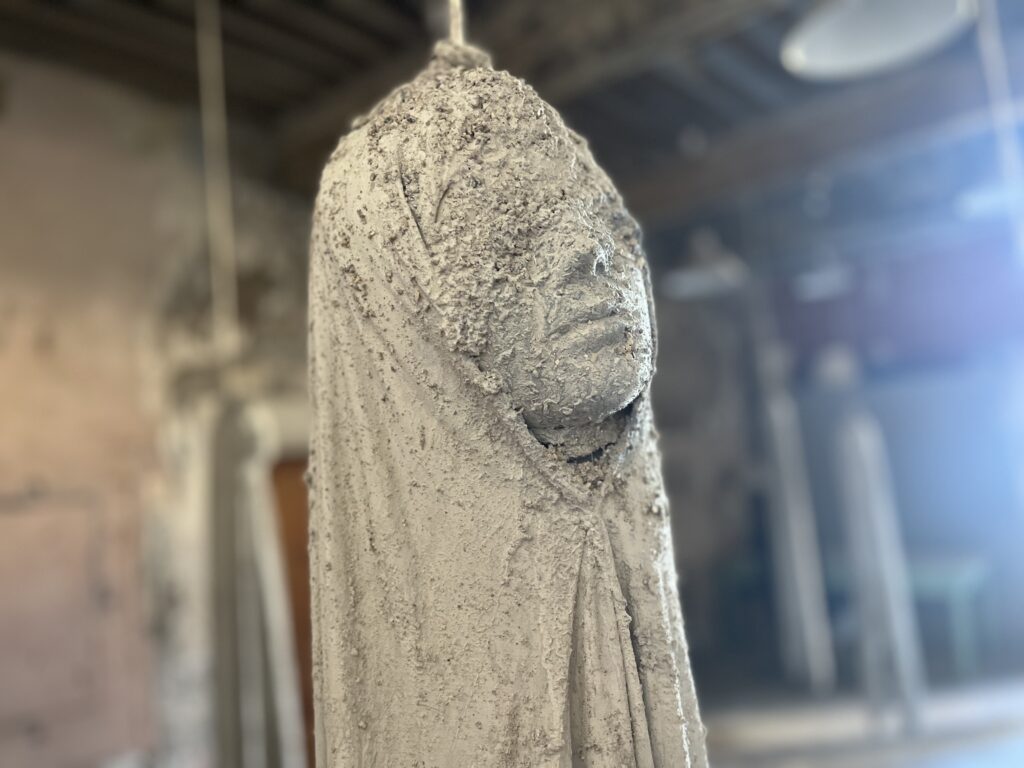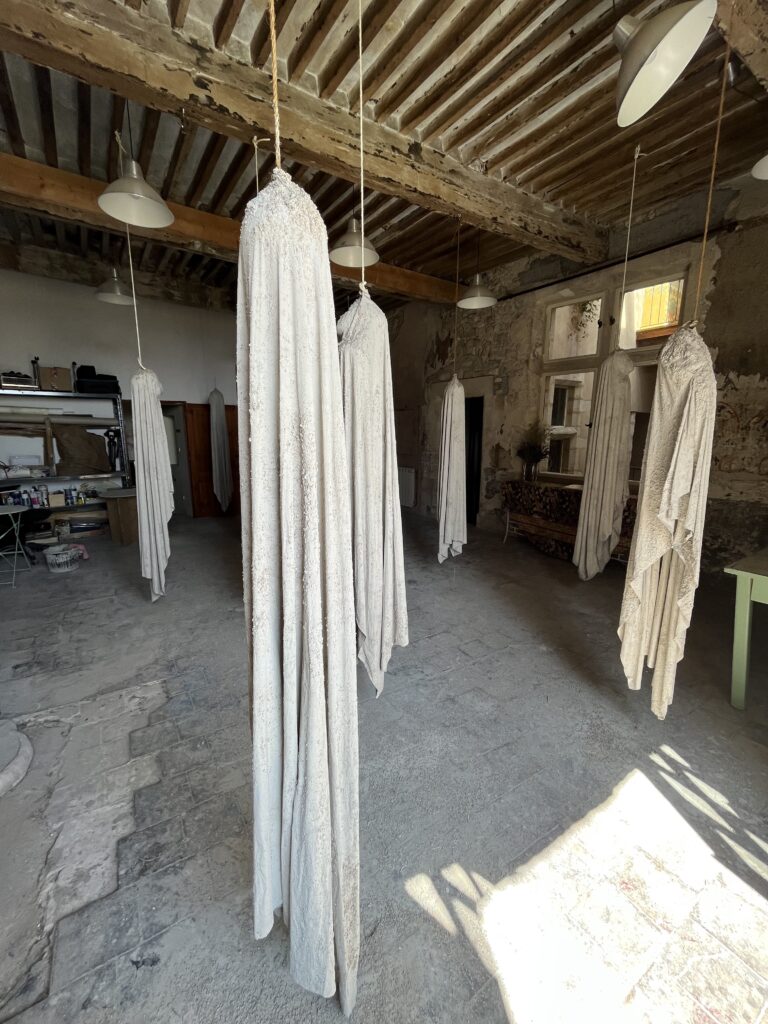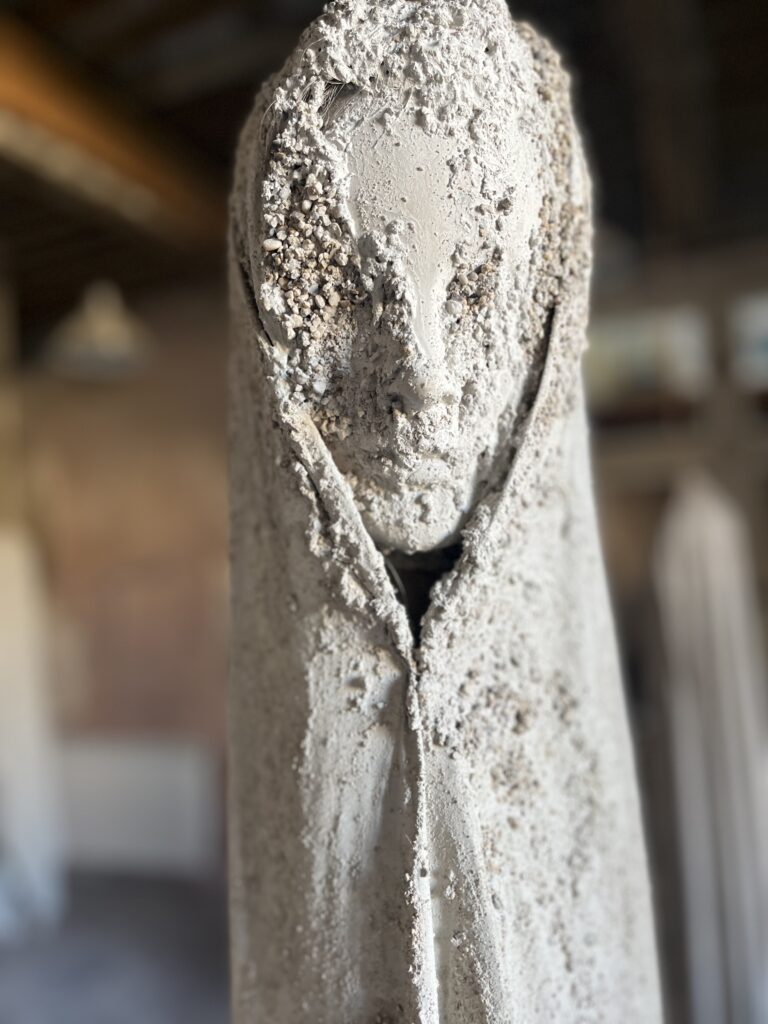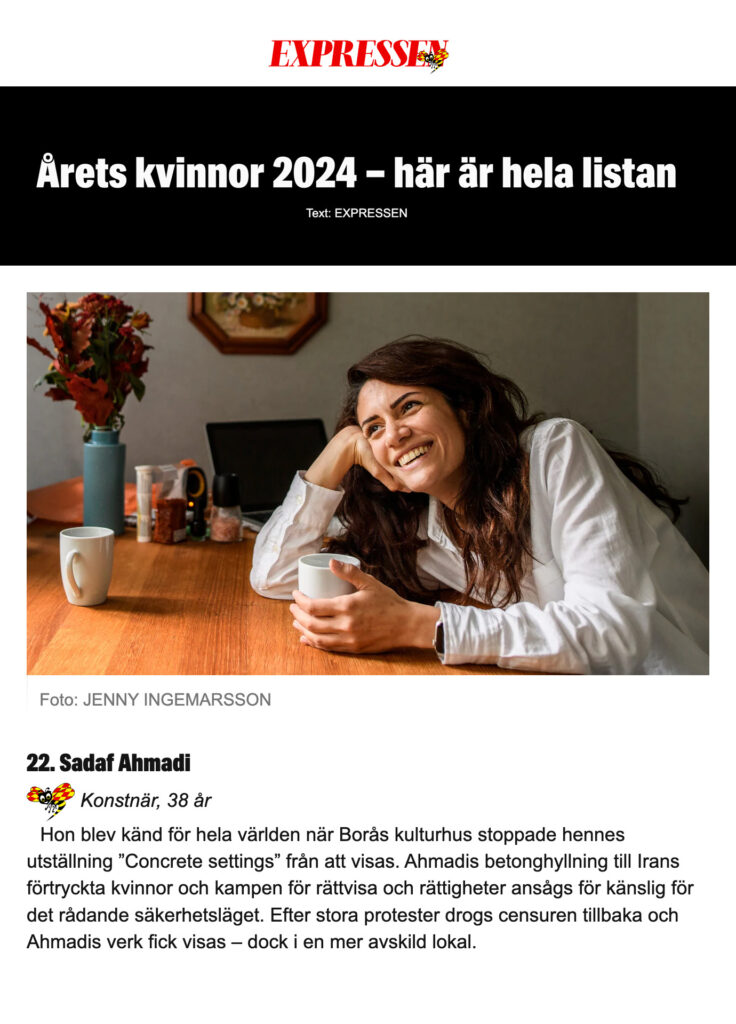
women of the year 2024
On March8th-international women’s day- Expressen highlights 100 Swedish women who are role models or otherwise standout.
Sadaf Ahmadi announced as 22nd woman of the list.
Here you can read about it
22. Sadaf Ahmadi
Artist 38 years old
She became known worldwide when Borås cultural center halted her exhibition “Concrete Setting” from being displayed.
Ahmadi’s concrete tribute to oppressed women in Iran and the struggle for justice and rights was considered too sensitive for the current security situation.
After extensive protests, the censorship was withdrawn, and Ahmadi’s work was allowed to be displayed – albeit in a more secluded location.
EXPRESSEN
You are invited to Örebro exhibition! 15 june-15 september
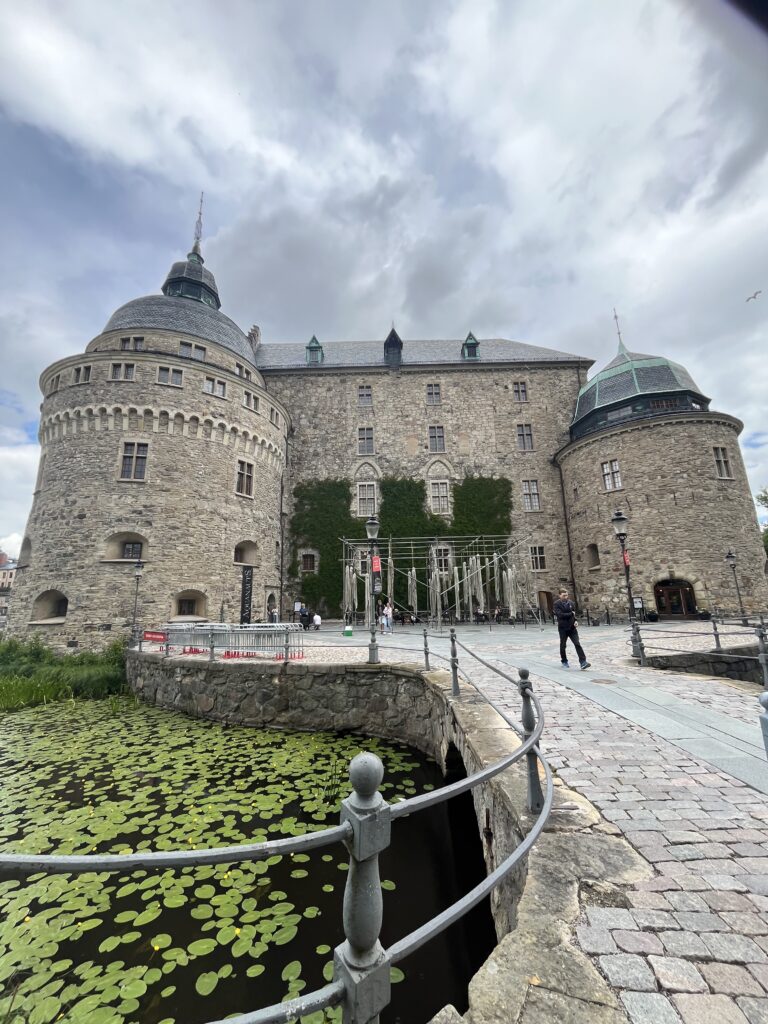
Concrete Setting by Sadaf Ahmadi
Photo: Mohamadreza Heydary
Her 31 three-meter-tall women dangle from a high scaffold in one of Open Art’s workshops in Väster, Örebro, resembling a forest of veiled women. It is an impressive work, almost overwhelming, with a clear critique aimed at the Islamic regime in her homeland…
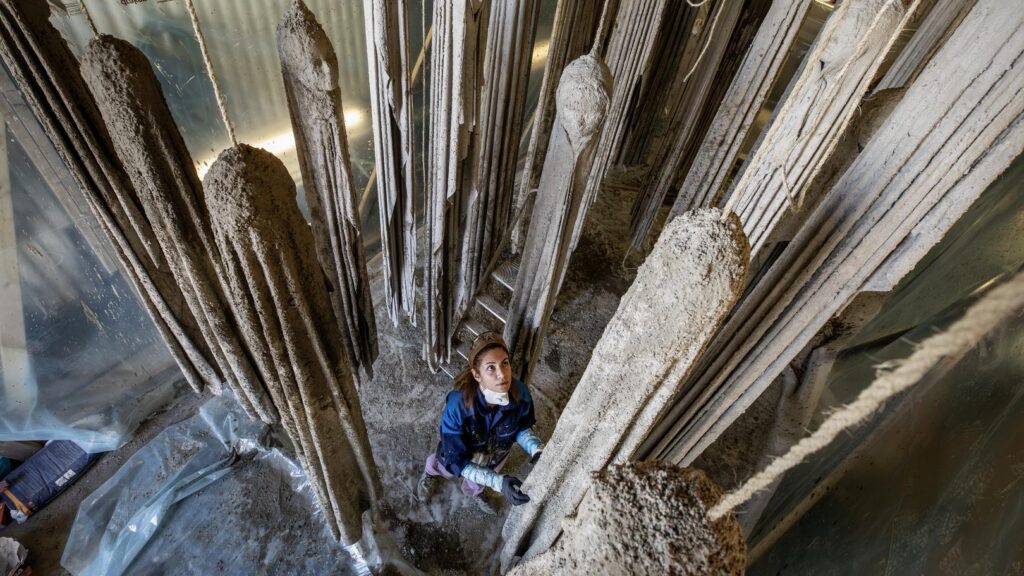
Open art workshop, Concrete Setting by Sadaf Ahmadi
Photo: Gabriel Rådström
This work brings image of an inspiration from a childhood memory rooted in the educational environment of the Islamic regime in Iran. It addresses the idealised image of women in Islam, as taught and expected from a very early age.
The figures depicted are women in veils, metaphorically buried under the oppressive weight of Islamic laws. These laws strip them of their bodily autonomy, reducing them to mere shadows of themselves, whether they seek spiritual elevation or aspire to participate in society.
The inclusion of this piece in an open space exhibition by Open Art has a significant impact. It stands as a defiant act against the fear that hinders the expression of our true feelings, promoting enlightenment and awareness among others.
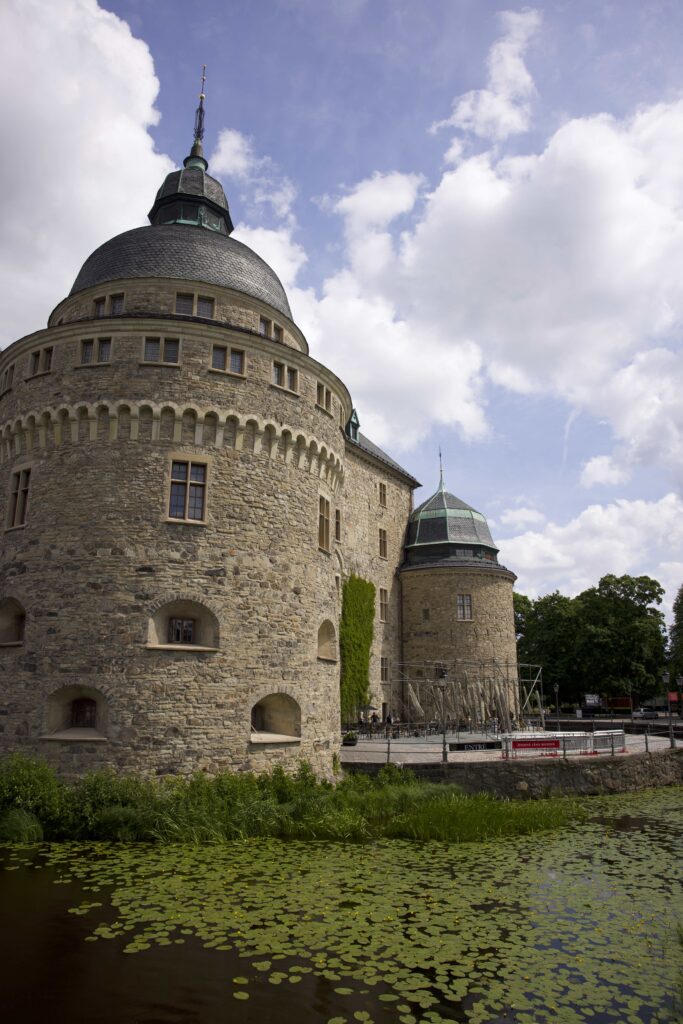
Photo: Mohamadreza Heydary
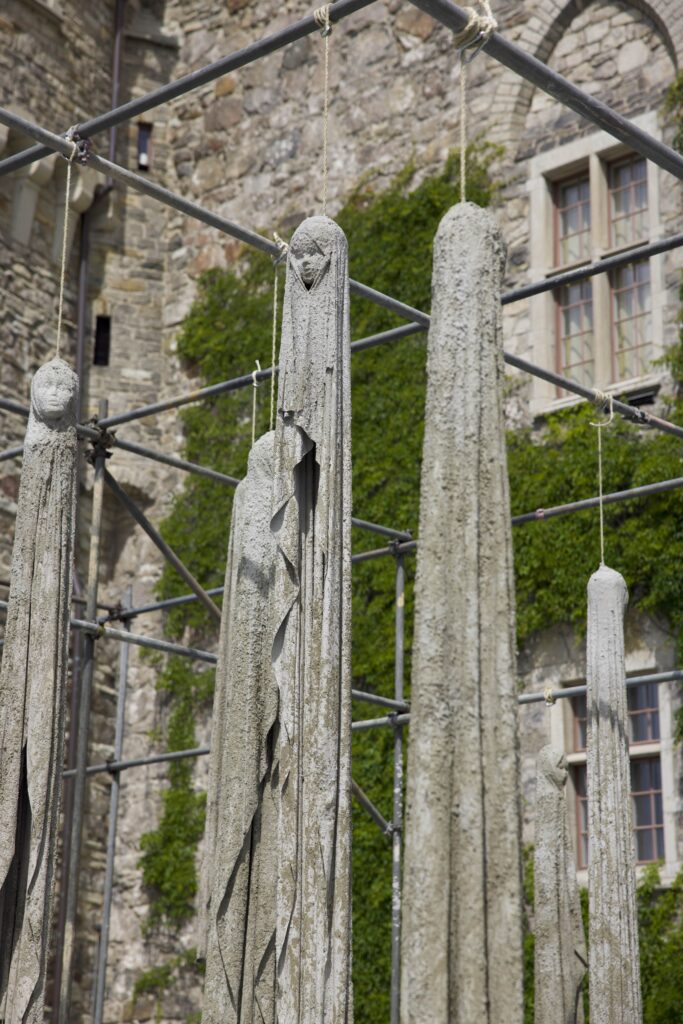
Photo: Mohamadreza Heydary
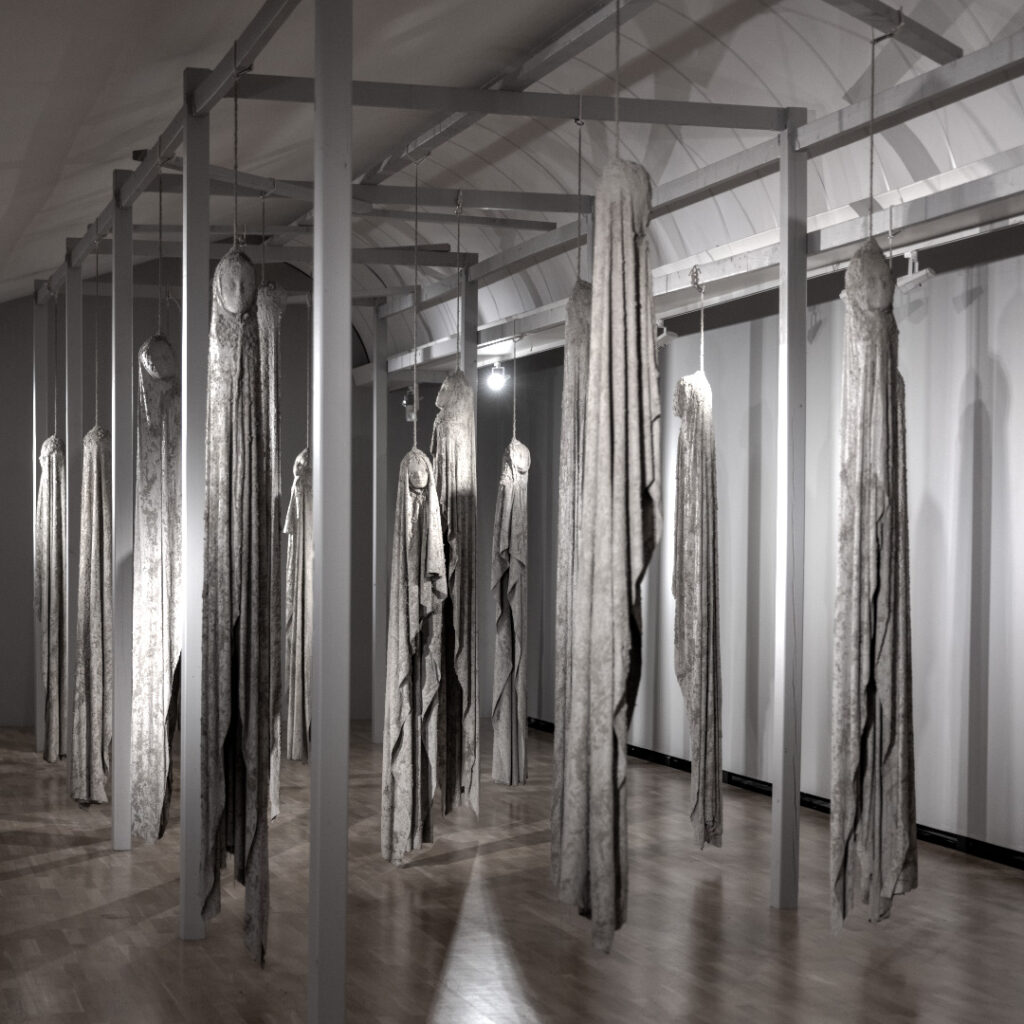
Concrete Setting In Borås Konstmuseum
21 oktober 2023–28 mars 2024
The Concrete Setting oscillates between despair and hope, where a material reality is intertwined with the notion of another possible future. Concrete, translated to English, is a conceptual term meaning real or tangible, but it’s also the name of the material the Iranian regime used to cover up the mass graves of tens of thousands of dissenters. By breaking apart the concrete, the faces of some of the many victims of the recent Women Life Freedom uprising in Iran are revealed. A sound landscape composed by Mohammad Reza Heydary explores life’s rhythms beneath the layers of concrete. Representations of suspended women and girls, bound by Islamic laws that hinder their spiritual elevation and destroy their bodies, femininity, and individual identity.
In a world where despair triumphs over hope and aspiration, freedom is transformed into a metaphorical and dreamlike concept.
MULTIDISCIPLINARY ARTIST
Sadaf Ahmadi was born 1985 in Tehran. Her works concerned with the experience of gender equality and freedom of choice both culturally and socially.
She expresses herself within documentary, experimental cinematic traditions and performing arts, video art, painting prints and installations

Concrete in france
The Concrete project is a collection of installation performance art and documented footages from instagram direct posts‚ which shows a chronological timeline of uprising in Iran woman, life ,freedom
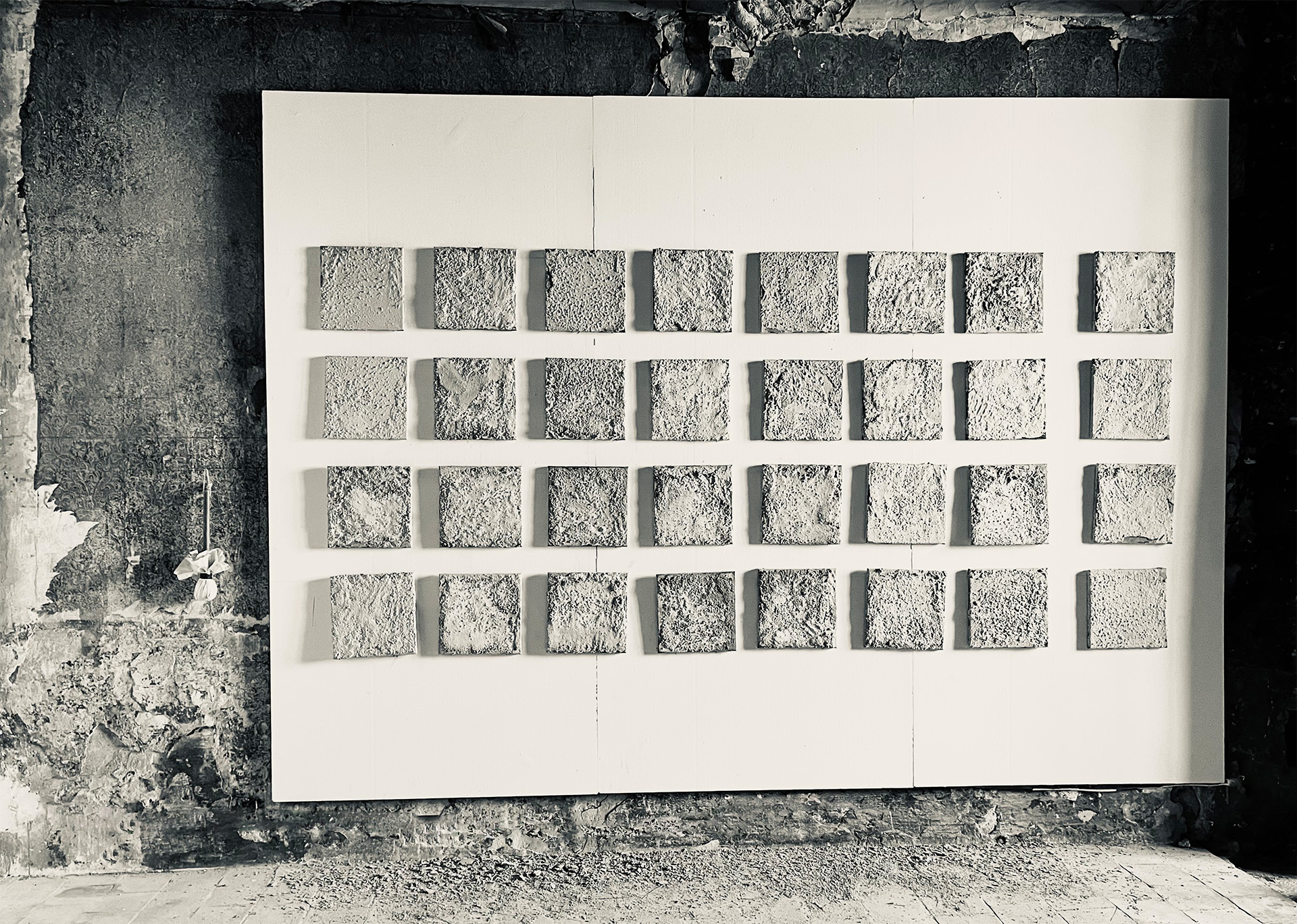
CONCRETE
It can be a building material we use to pour into any shape, a solid and lasting thing. It can also be a conceptual term meaning real or tangible. It is also what the Iranian government has used to cover the mass graves of tens of thousands of dissidents and protestors. In the new exhibit by Sadaf Ahmadi at La Maison des Chapitres, it will be a bit of all of these, but it will also be something that will be broken. Sadaf has chosen pictures of the people who have died in the ongoing protests for women’s rights in Iran stemming from the now famous murder of Mahsa Amini, transferred them onto canvas, and covered them in concrete. Every day, the visitors will be invited to come and break the concrete; to break the real, tangible thing covering the dead, and reveal the faces underneath. In so doing, the audience is invited to break down the idea that what is happening now is stable, durable, or fixed.
Aida Roustami was a doctor in Iran. Outraged by the violence of the regime against Iranians protesting the murder of Mahsa Amini, Aida offered to treat injured protestors without denouncing them to the government forces intent on arresting anyone who turned out to share their anger and sadness. Aida died in police custody after days of torture, presumably because she would not share the names of her patients. She is one of the portraits in Sadaf’s exhibit. Like all the others, her portrait is covered in concrete, a 30x30cm gray square, bleak and void of any trace of what lies beneath. But this is not an exhibit of one death, rather of a mass campaign of terror. Rows and rows of gray, concrete squares fill the exhibit. A mass grave.
Majid Reza Rahnavard was a young man who had attended a protest. Riding in a car that was deemed suspicious by the notorious Basij police force, he was arrested and beaten. Leaving the courtroom after his death sentence was handed down, his broken arm in a sling and his eyes blindfolded, he responded to a reporter’s question that his final wish was that people would play happy music and dance by his grave. Majid Reza’s portrait is also a 30x30cm gray square. But there is joy in his eyes, and we discover that. In fact, all of the portraits are joyful and beautiful once they are revealed. The concrete falls away and while the death and the disappearance are still concrete, so is the joy and life in their eyes.
Mahsa Amini was not an activist or a protestor or a dissident. Mahsa Amini ran a small shop with her family. Her death was widely publicised because she was a religious woman wearing a veil- and because some of her hair was showing when she was arrested and subsequently died in police custody. Her death became the spark that set off the current explosion of anger shaking Iran today. Everyone who has been murdered in the protests since can be called an activist, because they are activated. And they are activated.
An important part of this exhibition is joy. Irrepressible joy and desire for life and freedom. There is no resistance against death and pain without life and joy. This exhibition is sincerely a celebration of life and joy, albeit in a recreation of a mass grave. But this time, as we break down the concrete boundary that hides death and pain, we reveal the strength of hope in the face of incredible violence and repression. We see images circulating of Iranian women burning their scarves and dressing how they please at incredible personal risk, and we must understand what is at stake: death and pain, joy and freedom. These things are all concrete, but we can break the ones we want.
Sadaf Ahmadi is an Iranian-born artist currently living in Sweden.
CONCRETE ran from March 1-8, 2023 at La Maison des Chapitres in Forcalquier, France also in Paris in Espace des Blancs Manteaux The show will continue in Sweden at Borås Kulturhuset.
Basil Galloway
